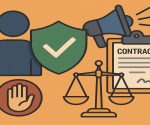Consumer responsibilities are very important in promoting fairness, safety, and ethical conduct in the marketplace. Consumer responsibilities always balance consumer rights and business liabilities, ensuring a healthy environment for buyers and sellers.
Consumer responsibilities are the duties a consumer must follow to make informed decisions, ensure personal safety, and promote ethical consumption. These are not laws but moral obligations that every consumer should practice. When consumers act responsibly, they contribute to the growth of ethical businesses, protect the environment, and ensure their safety. This makes the business act correctly since they know that enlightened consumers will demand quality and fairness.
Consumer responsibilities are thus strongly associated with consumer rights. Unlike consumer rights, which protect consumers from unfair practices, consumer responsibility is about making one play their rightful part in creating an efficient and just marketplace. Responsible consumers do not consider only their benefits but also what their decisions will cause for society and nature. The selection of environment-friendly products or responsible, ethical brands may eventually change the business.
Who Is a Consumer?
A consumer is an individual or a group of people that buys goods and services for direct use. These include, among others, an individual purchasing groceries, a family subscribing to internet services, and a company purchasing office supplies. Consumers do not produce goods and services but consume them to meet their needs and wants.
Demand for consumer goods and services drives the production process and accelerates businesses. No market would exist without consumers because, by definition, companies exist to satisfy buyers’ wants. Each time an individual purchases a product, offers a service, or utilizes a facility, they are consumers. Buying something makes them part of a bigger economic system in which money, goods, and services continuously flow.
However, a consumer is not merely an expense incurred. A consumer also has the right to informed decisions, the knowledge of rights, and a sense of responsibility. The market can be altered by the power of the consumers’ choices. When they ask for quality and fairness, the business is bound to deliver the same. On the other hand, if the consumers fail to fulfill their responsibilities, it might lead to lousy products, unethical business practices, and even damage to the environment.
Consumer Responsibilities Meaning
Consumer Responsibilities are the moral obligations that ought to be carried out by each consumer toward a fair and safe marketplace practice. These do not have legal enforcement; however, they create a healthy balance in economic activity.
- It is also observed that consumers possess rights that secure them from fraudulent activities and against all forms of malpractices; however, the same is expected from their part as responsibility toward the trustworthiness of the market.
- Another significant element of consumer responsibility is being able to complain about foul play. When a faulty product reaches any consumer, or someone is not up to the mark, they must complain.
- The act will favor the consumer, and other individuals will also be able to avoid similar circumstances. Companies continue the same flaws without consumers’ input because they never hear the grievances.
What are the 8 Consumer Rights and Responsibilities?
There are specific rights concerning a consumer that protect from unfair practice. These rights ensure they are appropriately treated and receive quality products and proper information. Let’s look in detail into the 8 rights of the consumer.
Right to Safety
Consumer rights must be protected from products or services hazardous to their health or life. For instance, food items have to meet safety standards so that one does not face any health problems.
Right to Information
Consumers are entitled to know everything regarding products they buy, such as price, quality, composition, shelf life and service conditions. This enables them to make the right choices.
Right to choose
Customers can exercise options within products and services available at competitive prices. They are not compelled to purchase an item when its alternative is available.
Right to be heard
Consumers are free to lodge grievances if there are any problems. The concerns are heard, and businesses and the government take suitable steps.
Right to Redressal
When there is some deficiency in the product or poor quality service, the consumers should get a substitute or appropriate reimbursement. Consumers can also resort to consumer courts to redress such complaints.
Right to Consumer Education
Consumers should be educated about their rights and duties. Awareness campaigns, advertisements like “Jago Grahak Jago,” and school curriculums are helpful.
Right to a Safe Environment
The consumer has the right to live and work in a safe and, sustainable, healthy environment. Consumers are protected against pollution and unwholesome trade practices.
Satisfaction of Basic Needs
All consumers have a right to obtain fundamental goods and services such as food, water, shelter, and health, considered necessities for human survival.
| Right | Meaning |
| Right to Safety | Protection from harmful products |
| Right to Information | Access to complete and accurate product details |
| Right to Choose | Freedom to select from a range of products |
| Right to Be Heard | Opportunity to express complaints |
| Right to Redressal | Right to seek compensation for grievances |
| Right to Consumer Education | Learning about consumer rights and responsibilities |
| Right to a Healthy Environment | Living in a safe, pollution-free environment |
| Right to Satisfaction of Basic Needs | Access to essential goods and services |
What are the Responsibilities of a Consumer?
Understanding consumer responsibilities in detail helps us see how individual actions can create a ripple effect in the marketplace. The responsibilities are about protecting oneself and promoting fairness, safety, and sustainability for everyone. Let’s explore the key consumer responsibilities and why they matter.
Responsibility to Be Informed
The first and most crucial responsibility as a consumer entails being informed in terms of taking information about anything before purchasing, and an informative consumer knows how it works in the case of goods or services plus the risks around it. However, they’re not dependent entirely on advertisements showing only the desirable features of whatever is being placed in the shelves.
Responsibility to Choose Wisely
A customer can opt to purchase locally sourced goods due to supporting the small businesses or order products that ensure sustainable materials to reduce the damaging impacts of resources. The smarter choices influence ethics in business operations because companies respond to consumer demand. Consequently, when clients prefer eco-friendly products, time and again, the business institution will invest in sustainable methods for production.
Responsibility to Use Products Safely
Once the product is bought, it doesn’t end there. Consumers must use products according to the manufacturer’s instructions to use goods safely. These are particularly important for the safety or health of items such as electrical appliances, medicines, and chemicals, where misuse can lead to accidents or health risks.
Ignoring safety instructions can have some very serious implications. If the mishandling has affected others, it might cause injuries or damage to properties and even bring about legal consequences. Proper usage also involves regular maintenance of items like vehicles or electrical equipment, for instance, so that they stay safe for long periods.
Responsibility to Act
Speaking out is the responsibility that gives consumers power over businesses. Consumers must not retreat to silence if the product is faulty, the service is unsatisfactory, or there is questionable company practice. Speaking out points out problems others face and keeps businesses “on their toes” and looking to improve.
Consumers can voice their concerns in many different ways. They may leave honest reviews online, contact customer service, file complaints with consumer protection agencies, or even sue if necessary. Social media has also been an excellent avenue for advocacy of consumer issues where people can express it freely and even widely quickly.
Speaking out will help both consumers and businesses. The companies can use it to their advantage in understanding areas they should improve and trust from their customers. Consumers ensure that their voice is heard and they receive fair treatment. When people are more vocal, businesses will have fewer chances of doing deceitful or destructive acts because they will be accountable to them.
Duty to Encourage Sustainable Consumption
Sustainability is fast becoming a very important part of consumer responsibility. Sustainable consumption means using resources to meet current needs without compromising the ability of future generations to meet theirs. It involves choosing environmentally friendly products, reducing waste, and conserving energy.
It involves educating others on environmental issues to promote sustainable consumption. When consumers share their knowledge and encourage others to make eco-friendly choices, it creates a culture of sustainability. This protects the environment and promotes healthier living conditions for everyone.
Consumer Responsibility to Speak Out
The right to speak out is more than a right; it is a responsibility that comes with being a responsible consumer. Businesses have no reason to change when consumers remain silent about poor-quality products, unethical practices, or unfair treatment. Speaking out holds companies accountable and helps protect other consumers from facing the same issues.
- When consumers report problems, it creates a feedback loop that businesses rely on to improve their products and services.
- Companies that receive constructive feedback are likelier to make changes that benefit everyone. For example, if a new smartphone model has a battery issue, early complaints can prompt the company to recall the product and fix the problem before it affects more people.
- There are several ways consumers can speak out effectively. Consumers can write reviews with many details on online platforms, share their experiences on social media, or directly contact company customer support. If those steps do not result in satisfactory outcomes, they can escalate the issue to consumer protection agencies or seek legal action.
- Speaking out is not only about complaints. Positive feedback is of equal importance. Whenever consumers share positive experiences, businesses are motivated to maintain higher standards, and that interaction boosts the employees who perform their jobs incredibly well.
- The balance between negative and positive feedback ensures a fair and transparent marketplace where consumers and businesses thrive together.
Effects of Irresponsible Consumer Behavior
Irresponsible consumer behavior has long-term impacts, not only on the individual consumer but also on businesses, society, and the environment. If consumers fail to take responsibility for their actions, it leads to problems that might negatively affect public health, cause environmental damage, and foster business malpractices.
| Type of Irresponsible Behavior | Impact on Consumers | Impact on Businesses | Impact on Society/Environment |
| Not reading product instructions | Health risks, accidents | Increased complaints, lawsuits | Higher medical costs in society |
| Supporting unethical businesses | Poor product quality | Encourages unethical practices | Exploitation of workers, pollution |
| Wasting resources | Higher personal expenses | Resource shortages | Environmental degradation |
| Not reporting faulty products | Ongoing product issues | Loss of customer trust | Safety risks for other consumers |
Consumer Responsibilities FAQs
What are the responsibilities of a consumer?
Consumer responsibilities involve information about products, wise and ethical choices, proper use of goods, outcry against unfair practices, and advocacy on sustainable consumption toward environmental protection.
What is meant by consumer responsibilities?
Consumer responsibility refers to the moral obligations of consumers regarding prudent thought, ethics, and the safe use of commodities.
How is consumer rights linked to consumer responsibility?
Consumer rights protect individuals from unfair practices, while consumer responsibilities ensure that consumers make informed and ethical choices.
Does being the king of the market mean a consumer has no responsibilities?
No, even though consumers have the power to influence the market, they still have responsibilities.
What is fair and responsible AI for consumers?
Fair and responsible AI for consumers means the ethical use of artificial intelligence to provide transparency, ensure data privacy, and ensure fairness in decision-making processes where the consumer’s interest is well protected within the digital marketplace.


